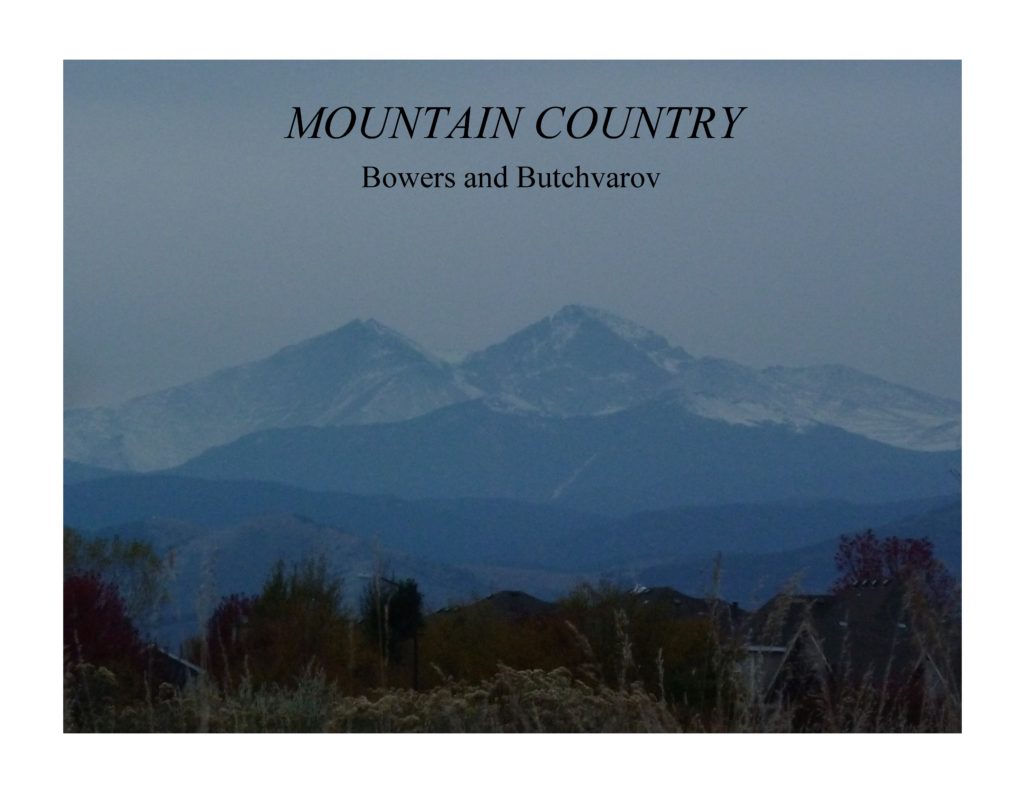
Their first encounter was in a wooded and remote area of their town, where confused and drug-addled youth were frequently observed running from their keepers in search of freedom. “Again I Will Be Free” was the motto of the City High Boyz gang. The son of the town metaphysician-butcher was learning to play guitar, so would almost always be seen tramping about the forest with a guitar in hand. He would be known as the Butcher. The other young man, the son of a words professor at the local institute of higher learning, was learning to use words to make poetry, so would be seen sitting by a creek, deep in thought, consumed by feelings while scribbling in a small notepad. He would be known as the Bard. Those are the circumstances of how the the Butcher and the Bard met.
“Would you be interested in trying to make a song together?” the youthful bard said to the youthful butcher, as they stood by a campfire and consumed forbidden substances, along with other members of their crew. “I’ve written some poems you know.”
The butcher’s immediate thought was, ‘Who is this punk? He’s a year younger than me. Doesn’t he realize that I’m going somewhere in this world? What could he possibly write that would interest me?’
“Sure. Let’s try it sometime. I’m lousy with words, so I’m open to the idea,” the butcher said, then forgot about the idea and focused his thoughts on a new guitar chord he was inventing.
The mists and twists of history have obscured what happened next in the sunset saga of the Butcher and the Bard, but somehow they managed, over the next 5 decades, to co-author dozens of curious pieces of music and verse. Some were simple ditties, others were epic creations defying conventional good taste. Encountering each other in a distant locale, they composed an ode to the mountain country they both adored. Out of the deep blue, via the US mail, they were able to construct odes to a wild train, scene of the time, and that all made equal view of things.
Their task to achieve relevance and immortality via popular song would become fodder for the Critical Analysis of Literary Luminaries courses taught at the universities. Because neither the butcher nor the bard ever discussed their work (not even between themselves, and certainly not with the press), there was always ample cause for discussion as to what their work suggested artistically in it’s novelty. “Odd and weird” sometimes came to mind.
Many theories were espoused, where the conclusion drawn was that the butcher tended toward simpleminded humor and love, while the bard had tendencies to crypticism and cynicism in his verses and ravings. As for the at times appalling and numbing musical flights of fancy exhibited in their songs, since they never spoke of their methodology, the scholars pondering such matters were left to their own speculations. Who was the guitar butcher? Who was the bard of words? Who did what, and why? It was discovered by probing sleuths that both had attended the same Music Appreciation class at the University, and that the bard had aced it, whereas the butcher had failed the course, then dropped out of school forever. Little else is known from that era of their association.
Over the years there were tense moments between the butcher and the bard, as each of them dealt with the realities of their lives. They’d fallen to insults and recriminations in their interactions at times, yet somehow continued to pay homage to the gods of popular song and wandering wordplay. The butcher had learned some words himself over the years, and was writing his own style of popular song and story. And the bard joined the ranks of that suspicious genre- fantasy novels. They’d become sensitive artists! At times the butcher would harbor deep lamentations regarding the state of the literary world, and how the vogue of late was the expression, through the use of multitudes of ‘evocative words and juxtapositions’, the simple truths of the human experience, revealed and illuminated on endless pages.
The butcher would present a melody or outline to the bard, and be met with, “Dump it. It’s tripe!”
The bard would complain, “You changed one of my words, asshole.”
“I can’t sing that word, punk.” the butcher would erupt.
“Get crackin dude. I wanna see your keyboard smokin.” the butcher would prod.
“I’m tired of your abuse. Don’t browbeat me!” the bard would reply indignantly.
“What do you think of that slide guitar?” the butcher would ask the bard, and be met with, “It hurts my ears. Ditch it.”
They were each losing their minds, (25,000 brain cells per day at their age), so were diligently focused on matters of legacy. But their works remain testimony to the idea that even a butcher and a bard, through patience, cooperation, and ample suffering, along with some amount of exasperation, were able to create something enduring and entertaining. Success again!
CP Butchvarov 2024